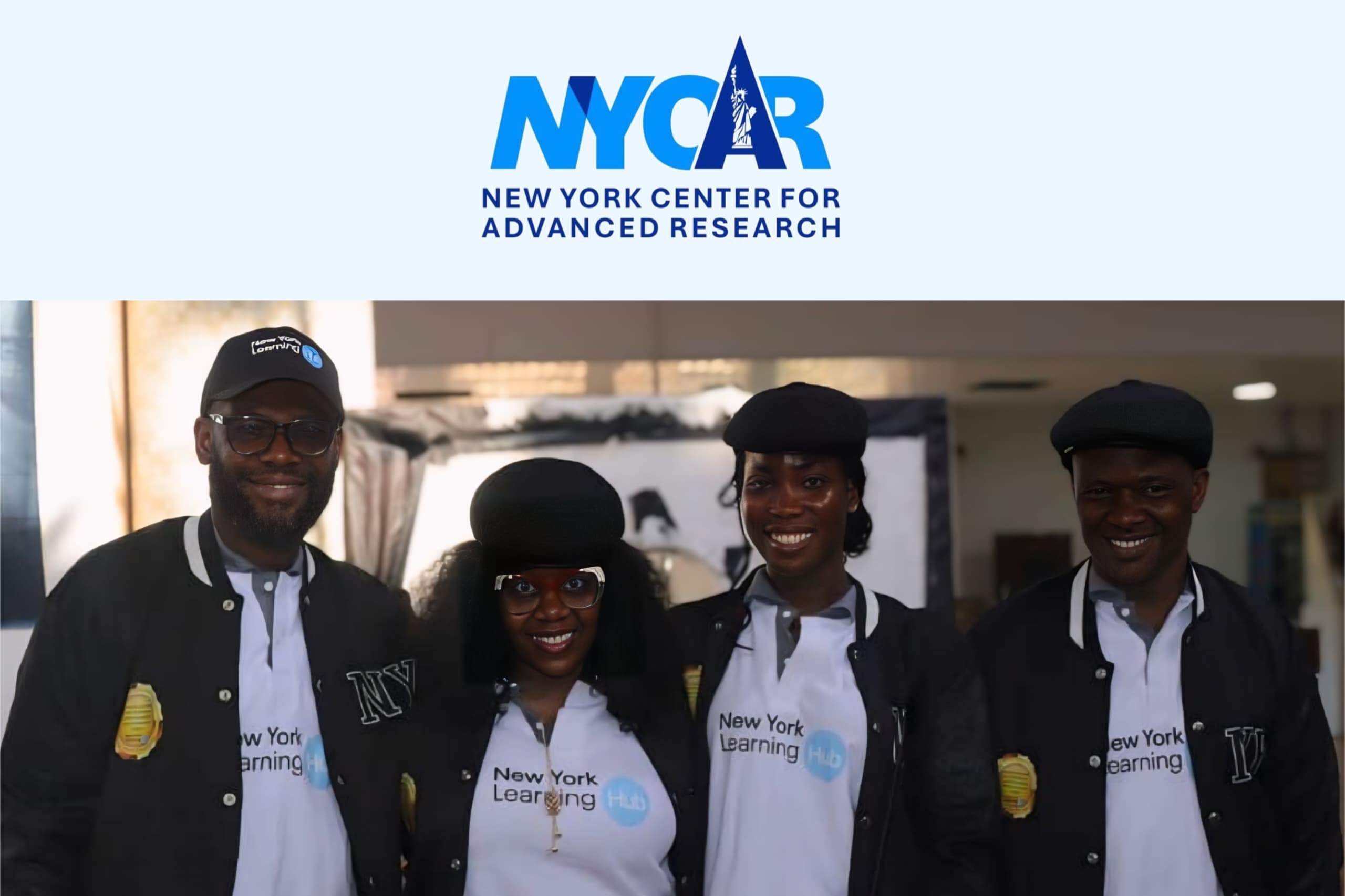Women’s reproductive health is fundamental to societal well-being, yet it remains plagued by disparities, stigma, and systemic neglect. Despite medical advancements, millions of women worldwide face barriers to reproductive healthcare, often due to cultural, economic, and infrastructural constraints (Akhirome-Omonfuegbe, 2020). In Nigeria, where fertility is deeply intertwined with societal expectations, reproductive health challenges are particularly pronounced. This article delves into the intersection of women’s fertility, access to healthcare, and the broader socio-economic implications, highlighting the urgency of empowering women’s reproductive health.
The State of Women’s Reproductive Health
Globally, infertility affects an estimated 48.5 million couples, with Africa accounting for a substantial proportion of these cases (AbayomiAjayi, BamgboyeAfolabi & VictorAjayi, 2020). In Nigeria, infertility rates remain high, often exacerbated by untreated infections, unsafe abortions, and lack of access to assisted reproductive technologies (ART) (Akintayo, 2022). Cultural misconceptions further complicate the issue; for instance, many Nigerian women still hold myths regarding menstruation and its link to fertility, with nearly 60% believing that irregular menstruation equates to infertility (Abidoye et al., 2022).
Healthcare access disparities play a significant role in perpetuating reproductive health challenges. Women in rural Nigeria often travel up to 20 kilometers to reach the nearest health facility, making routine reproductive care difficult (Mbah, Isiugo-Abanihe & Nwokocha, 2023). Additionally, financial constraints remain a barrier; ART treatments such as in vitro fertilization (IVF) are prohibitively expensive for many, despite success rates reaching up to 40% for women under 35 (Akeju, 2021). Consequently, many couples resort to unregulated, traditional remedies, further endangering their reproductive health.
The Role of Education and Awareness
Education is critical in dismantling reproductive health myths and enabling informed decision-making. A study by Baba, Zain & Idris (2019) found that knowledge of ovulatory cycles among Nigerian women was alarmingly low, with only 25% demonstrating an understanding of their fertile windows. This lack of awareness contributes to unintended pregnancies and suboptimal fertility management.
Empowering women through education—via community outreach, digital platforms, and school curricula—can improve reproductive health outcomes. Research suggests that lifestyle modifications, including proper nutrition and stress management, can enhance fertility rates by up to 30% (Bamigbala, Ojetunde & Okorie, 2022). Digital health interventions have also shown promise in Nigeria, where mobile-based reproductive health education has improved knowledge retention and contraceptive uptake among young women (Adetoro & Okike, 2021).
Expanding Access to Modern Fertility Treatments
Advancements in ART, including IVF and intrauterine insemination (IUI), have revolutionized fertility treatments, but accessibility remains a significant challenge. Nigeria’s fertility industry is largely unregulated, with costs for a single IVF cycle ranging between $3,500 and $6,000—beyond the reach of most citizens (AbayomiAjayi, BamgboyeAfolabi & VictorAjayi, 2020). In response, countries such as Ghana and South Africa have introduced subsidized fertility programs, demonstrating that public-private partnerships can bridge this affordability gap (McGovern et al., 2019).
Fertility preservation remains another underexplored area. Cancer treatments such as chemotherapy often compromise reproductive potential, yet fertility preservation services remain limited in Nigeria. A study found that only 54.6% of Nigerian healthcare workers were aware of available fertility preservation options, further limiting patients’ chances of safeguarding their reproductive futures (AbayomiAjayi, BamgboyeAfolabi & VictorAjayi, 2020).
The Psychological and Emotional Toll
Infertility is often accompanied by psychological distress, exacerbated by societal pressures and cultural stigmatization. In many Nigerian communities, women who struggle to conceive face discrimination, marital instability, and even domestic abuse (Olaseinde et al., 2022). The psychological burden extends beyond individual experiences, affecting mental health and overall well-being.
Support networks, counseling services, and community interventions play crucial roles in mitigating these challenges. Studies show that participation in fertility support groups significantly reduces stress levels and improves emotional resilience among women undergoing ART (Atama et al., 2021). Expanding access to mental health resources is therefore integral to a holistic approach to reproductive healthcare.
Societal and Economic Implications
The economic consequences of inadequate reproductive healthcare are profound. High fertility rates, often driven by lack of contraceptive use and reproductive education, strain national resources and limit women’s participation in the workforce (Ayinmoro & Duniya-Akinpelumi, 2024). A study analyzing reproductive health outcomes in Nigeria found that regions with higher fertility rates correlated with lower female labor force participation (Awowole et al., 2020).
Conversely, investments in women’s health yield substantial economic returns. Research indicates that every dollar invested in reproductive health services generates up to three dollars in economic benefits, as healthier women contribute more effectively to their communities (McGovern et al., 2019). Nigeria’s demographic transition depends on equipping women with the tools to manage their reproductive health, ensuring that future generations benefit from a well-balanced population structure.
Read also: Revitalizing Health: The Unmatched Benefits Of African Foods
Policy and Advocacy: The Way Forward
Addressing reproductive health disparities requires a multi-faceted approach, incorporating policy reform, healthcare investment, and cultural shifts. Strengthening Nigeria’s legal framework for reproductive rights is essential; currently, legislative gaps allow gender disparities in healthcare access to persist (Akhirome-Omonfuegbe, 2020). Policy interventions must prioritize:
- Subsidizing ART treatments and reproductive healthcare services
- Expanding sexual and reproductive health education programs
- Establishing dedicated mental health resources for fertility-related distress
- Implementing community-driven advocacy campaigns to reduce stigma
Furthermore, reproductive justice must be framed as a human rights issue. Litigation strategies, modeled after successful cases in South Africa, can be leveraged to challenge systemic discrimination and push for equal access to reproductive healthcare (Akintayo, 2022).
Conclusion: Reclaiming Dignity, Empowering Nigeria’s Future
Women’s reproductive health transcends the confines of medical treatment, it is a cornerstone of social justice, economic progress, and human rights. The challenges that beset reproductive care in Nigeria are formidable: inadequate healthcare infrastructure, cultural stigmas, and limited access to advanced fertility treatments have long hampered women’s ability to make informed reproductive choices. Yet, these obstacles, while daunting, are not insurmountable. A renewed commitment to comprehensive, equitable healthcare can transform lives and reshape the future of the nation.
At its essence, ensuring optimal reproductive health for women means valuing their right to a healthy, dignified life. When women are supported in every aspect of their reproductive journey—from access to quality care and accurate information to emotional and psychological support—the benefits extend far beyond individual wellness. Healthier women nurture stronger families, contribute more effectively to their communities, and drive economic growth. The statistics are compelling: investments in women’s health can yield significant returns in productivity, social stability, and even GDP growth. In Nigeria, where a robust youth population represents the engine of future progress, these benefits are especially critical.
The prolonged barriers to fertility and reproductive care impose a heavy cost. Women facing systemic neglect endure not only physical hardships but also emotional and social isolation. Many are forced to navigate life-threatening complications during pregnancy and childbirth due to delays in care and lack of adequate support. Such tragedies are not isolated incidents; they reflect a broader societal failure that stifles potential and weakens communities. Every woman denied the chance to receive proper reproductive care is a missed opportunity for the nation to flourish.
However, there is a promising path forward. By fostering widespread awareness and reshaping societal attitudes towards reproductive health, Nigeria can dismantle the long-standing taboos that silence these vital conversations. Comprehensive public health campaigns, community outreach, and inclusive education initiatives can empower women with the knowledge they need to take control of their reproductive futures. When cultural stigmas are challenged and replaced with messages of empowerment and respect, the impact is transformative—not only on an individual level but across entire communities.
Furthermore, improving healthcare access is paramount. Investment in modern healthcare facilities, affordable treatments, and innovative technologies can bridge the gap between promise and practice. Pilot programs in various Nigerian states have already demonstrated that when women receive timely and effective care, the overall quality of life improves dramatically. Such initiatives pave the way for scalable solutions that can be adapted nationwide, reducing maternal mortality rates and enhancing fertility outcomes.
The pursuit of improved reproductive health is a collective journey—a shared commitment to building a future where every woman can thrive. A nation that prioritizes women’s reproductive health is a nation that lays the foundation for long-term peace and prosperity. When we invest in women’s health, we invest in the future of families, communities, and the entire nation. The call for change is clear: it is time to break down the barriers, challenge the status quo, and build a system that honors the intrinsic value of every woman.
In conclusion, the time for action is now. By embracing a holistic, human-centered approach to reproductive health, Nigeria can transform the lives of millions. This transformation is not merely about medical interventions—it is about reclaiming dignity, empowering women, and ultimately securing a brighter, more resilient future for the nation. The journey ahead is one of hope, commitment, and unwavering belief in the potential of every woman to shape a better tomorrow.
References
AbayomiAjayi, B., BamgboyeAfolabi, M. & VictorAjayi, D. (2020). Opinions of indigenous health-workers on fertility preservation among female cancer patients in Nigeria: Pros and cons.
Abidoye, G. et al. (2022). Relationship between menstruation and fertility: Perception and knowledge of Nigerian women. Gynecology & Reproductive Health.
Adetoro, N. & Okike, B.O.I. (2021). Technology use for reproductive health information dissemination to pregnant patients in government hospitals as perceived by midwives in Ogun-State. Journal of Hospital Librarianship.
Akeju, K. (2021). Fertility preference in older women: Effect of place of residence and use of contraceptives in Nigeria.
Akhirome-Omonfuegbe, L. (2020). A critical appraisal of women’s reproductive rights in Nigeria.
Akintayo, A. (2022). Challenges and prospects of litigating sexual and reproductive health and rights of women in Nigeria: Lessons from comparative foreign jurisprudence.
Atama, C. et al. (2021). Socio-economic status of women and fertility outcome in Benue State, North-Central, Nigeria. Health Care for Women International.
Ayinmoro, A.D. & Duniya-Akinpelumi, A.K. (2024). Internal migration and fertility levels among Nigerian women: Analysis on trends and patterns. IBADAN Journal of the Social Sciences.
Awowole, I. et al. (2020). Quality of reproductive health care in Nigeria: A critical appraisal. Nigerian Journal of Medicine.
Baba, I., Zain, R. & Idris, M. (2019). Women’s knowledge of reproductive health rights and their participation in reproductive decision making: An explorative study of women in Ankpa local government of Kogi State of Nigeria.
Bamigbala, O., Ojetunde, A.O. & Okorie, C. (2022). Knowledge of ovulatory cycle and associated factors among reproductive age women in Nigeria. Medical Science of Ukraine.
McGovern, T. et al. (2019). Association between plural legal systems and sexual and reproductive health outcomes for women and girls in Nigeria: A state-level ecological study. PLoS ONE.
Olaseinde, O. et al. (2022). Fertility intentions among high-parity women in Nigeria: How satisfying are four living children? Journal of Population and Social Studies.










